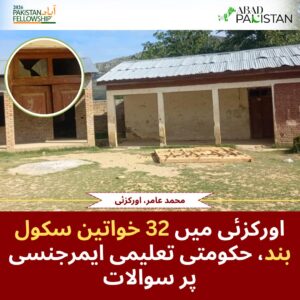Written by EJAZ AHMED
Introduction
Climate change poses a significant threat to Pakistan, a country that is already experiencing the adverse impacts of rising temperatures, shifting weather patterns, and increased frequency of extreme weather events. As a developing nation with a diverse landscape, Pakistan faces unique challenges in addressing climate change. However, the country is also taking proactive measures to mitigate these impacts and adapt to the changing environment. This article explores the key strategies Pakistan is employing to combat climate change.
1. Renewable Energy ExpansionOne of the primary strategies
Pakistan is implementing to reduce its carbon footprint is the expansion of renewable energy sources. The country has immense potential for solar, wind, and hydropower, which are being harnessed to transition from fossil fuels to cleaner energy. The Quaid-e-Azam Solar Park in Punjab and the Gharo Wind Corridor in Sindh are notable projects contributing to this shift. By increasing the share of renewable energy in its energy mix, Pakistan aims to reduce greenhouse gas emissions and ensure energy security.
2. Reforestation and Afforestation Initiatives
Forests play a crucial role in absorbing carbon dioxide and maintaining ecological balance. Pakistan’s ambitious Billion Tree Tsunami project in Khyber Pakhtunkhwa has been a significant step towards reforestation. This initiative aims to restore degraded forests and increase the overall forest cover, thereby enhancing the country’s carbon sequestration capacity. Additionally, the federal government launched the Ten Billion Tree Tsunami Programme to replicate this success nationwide, involving local communities and promoting sustainable forestry practices.
3.Climate-Resilient Agriculture
Agriculture is the backbone of Pakistan’s economy, employing a large portion of the population. However, it is highly vulnerable to climate change. To address this, Pakistan is adopting climate-resilient agricultural practices. These include the development and promotion of drought-resistant crop varieties, efficient water management techniques, and the use of modern irrigation methods like drip and sprinkler systems. These measures help ensure food security and protect the livelihoods of farmers in the face of changing climatic conditions

4. Improved Water Management
Water scarcity is ,a pressing issue exacerbated by climate change in Pakistan. Effective water management is critical to cope with this challenge. The construction of new dams, such as the Diamer-Bhasha and Mohmand dams, aims to enhance water storage capacity and mitigate the impacts of droughts. Additionally, Pakistan is investing in the rehabilitation of existing water infrastructure and promoting the use of rainwater harvesting techniques to conserve this precious resource.
5. Urban Planning and Sustainable Development
Rapid urbanization in Pakistan has led to increased pressure on urban infrastructure and resources. To create climate-resilient cities, Pakistan is focusing on sustainable urban planning. This includes the development of green spaces, efficient public transportation systems, and the promotion of energy-efficient buildings. Integrating climate considerations into urban planning helps reduce the urban heat island effect, lower emissions, and enhance the quality of life for urban residents.
6. Awareness and EducationRaising awareness
To educating the public about climate change is crucial for driving collective action. Pakistan is incorporating climate change education into school curriculums and conducting awareness campaigns to inform citizens about the impacts of climate change and the importance of sustainable practices. Engaging communities and fostering a sense of responsibility can lead to more effective and widespread adoption of climate-friendly behaviors.
7.Public Awareness Campaigns:
Conducting awareness campaigns through media, community workshops, and public events can inform citizens about the impacts of climate change and the importance of sustainable practices. These campaigns can highlight simple actions individuals can take, such as reducing energy consumption, conserving water, and minimizing waste.
8. Community Engagement:
Engaging local communities in climate action initiatives ensures that strategies are culturally appropriate and effectively implemented. Community-led projects, such as tree planting drives and clean-up campaigns, can foster a sense of ownership and responsibility among participants.
9. Public Transportation:
Developing efficient public transportation systems can reduce traffic congestion, lower emissions, and decrease the reliance on private vehicles. Investments in metro systems, bus rapid transit (BRT), and cycling infrastructure are essential for promoting sustainable urban mobility.
10.Energy-Efficient Buildings:
Promoting energy-efficient building designs and retrofitting existing structures with energy-saving technologies can significantly reduce urban energy consumption and emissions. Building codes that mandate the use of insulation, energy-efficient windows, and solar panels can drive this transformation.
Actions to Combat Climate Change
Individual Actions:
Reducing energy consumption, using public transportation, recycling, and supporting sustainable products can contribute to mitigating climate change.
Policy and Regulation:
Governments can implement policies such as carbon pricing, subsidies for renewable energy, and regulations on emissions to reduce greenhouse gas outputs.
Innovation and Technology:
Advances in technology, such as electric vehicles, renewable energy sources, and carbon capture and storage, play a crucial role in reducing greenhouse gas emissions.
Conclusion;
Pakistan is at a critical juncture in its fight against climate change. By embracing renewable energy, reforestation, climate-resilient agriculture, improved water management, sustainable urban planning, and public awareness, the country is taking significant strides toward a more sustainable future. Continued commitment and collaboration at all levels of society will be essential to mitigate the impacts of climate change and build a resilient Pakistan for generations to come.





